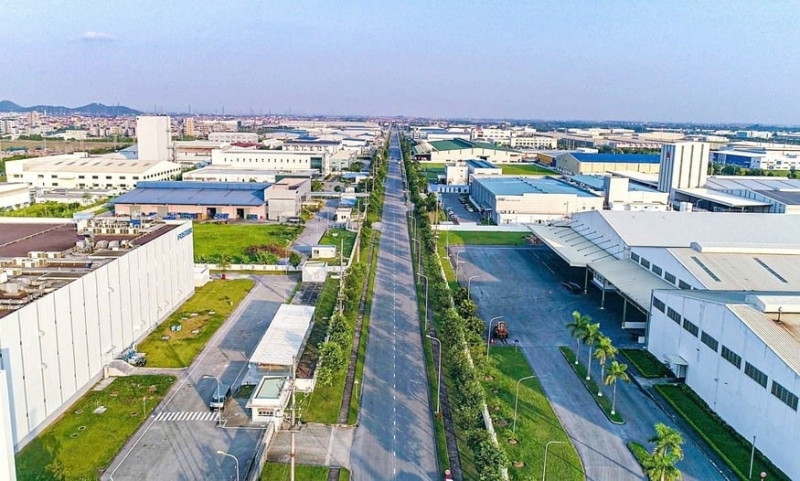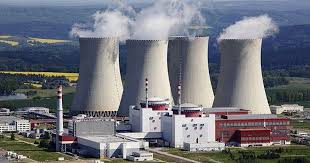- Understand the market
- In-depth study
- Restarting Nuclear Power: A Decisive Move by the Government to Ensure Vietnam's Energy Security

Case study
Our in-depth articles across various fields provide valuable and diverse information for our clientsThe Urgency of Nuclear Power in Vietnam’s Current Context
In his speech at the 12th Group Discussion, during the 8th Session of the 15th National Assembly, General Secretary To Lam highlighted the question, “Why do we need an amended Electricity Law?” and pointed out, “The demand for energy infrastructure is one of the guiding, pillar, and breakthrough issues.”
Experts note that Vietnam’s robust economic growth and the continuous expansion of production and business activities have driven an ever-increasing demand for electricity. On average, a 1% economic growth rate results in a 1.5% increase in electricity demand. With high growth targets in the coming years, Vietnam’s electricity demand is expected to rise by at least 10% annually.
Amid this context, traditional power sources such as coal and gas face significant challenges from greenhouse gas emissions and price volatility, while hydropower resources are nearly maximized. Therefore, meeting the forecasted doubling of electricity demand by 2030 necessitates a combination of traditional energy, renewable energy, and nuclear power.
Nuclear power stands out for its stable supply capacity, addressing electricity shortages during peak seasons and ensuring a continuous energy source for production and daily activities. Despite high initial investment costs, nuclear power features low operational costs, making it particularly suitable for energy-intensive industries.
Large energy projects, including nuclear power plants, not only play a critical role in meeting growing electricity demand but also act as a catalyst for rapid economic growth. These projects also enhance Vietnam’s appeal to foreign investors, strengthening the country’s position in the global value chain.
Vietnam is Ready to Restart the Nuclear Power Project
With the global energy transition toward Net Zero, nuclear power can serve as a foundational energy source, complementing wind and solar power to ensure stability.
The National Assembly approved the resolution during the 8th Session of the 15th National Assembly to continue the investment policy for the Ninh Thuan nuclear power project. Furthermore, the amended Electricity Law, which includes policies for nuclear power development, was also passed, providing a solid legal foundation for the realization of nuclear power projects.
This decisive move by the government addresses energy supply-demand imbalances, ensuring a stable and sustainable electricity supply to support the growing economy and enhance the nation’s competitiveness in attracting foreign investment.
Vietnam has partnered with developed nuclear power nations such as Russia and Japan to integrate, learn, and transfer technology. To address operational risk concerns, Vietnam has opted for the most modern technologies with stringent safety standards. The third-generation+ reactors targeted for use not only meet international requirements but are also designed to minimize accident risks and enhance operational stability and safety.
A Highly Skilled Workforce: A Key Element
Human resources are a cornerstone of Vietnam’s roadmap for nuclear power development. Since the initial exploration of the Ninh Thuan nuclear power project in 2009, Vietnam has prioritized training a specialized nuclear workforce. According to the Vietnam Atomic Energy Institute, over the past 50 years, approximately 1,000 nuclear specialists have been trained, with nearly 400 receiving advanced training between 2005 and 2020. These figures reflect Vietnam’s strong commitment to preparing a high-quality workforce capable of adopting technology and operating nuclear power plants.
Economic Drivers and Clean Energy Commitments
The government aims to develop nuclear power not only as an energy source but also as an economic driver, with synchronized planning to ensure connectivity between nuclear power plants, the national power transmission system, and key industrial zones. Investments in supporting infrastructure, research centers, training facilities, and nuclear laboratories will also foster the development of domestic technology.
With carbon emissions of only about 6 grams per kWh, nuclear power is considered one of the cleanest energy sources, aligning with Vietnam’s Net Zero emissions goal. In practice, countries like Japan, South Korea, and China have increased the proportion of nuclear energy in their power mix to address similar energy challenges.
Reactivating the nuclear power project will position Vietnam to advance further in the Fourth Industrial Revolution. Beyond electricity generation, nuclear technology plays a crucial role in strengthening Vietnam’s national scientific and technological capabilities and integrating into the global nuclear power supply chain. It also opens opportunities to boost the high-tech industry, reduce environmental impacts, and enhance Vietnam’s competitiveness in attracting global energy investment.
A Promising Future for Nuclear Power in Vietnam
With a solid legal framework and clear development orientation, nuclear power is poised to become an indispensable part of Vietnam’s investment strategy, contributing to sustainable national development.
Bạn đã nói:
Related articles





Do you need support?
Our team of experts is always ready to support and provide customers with optimal solutions! Contact us










